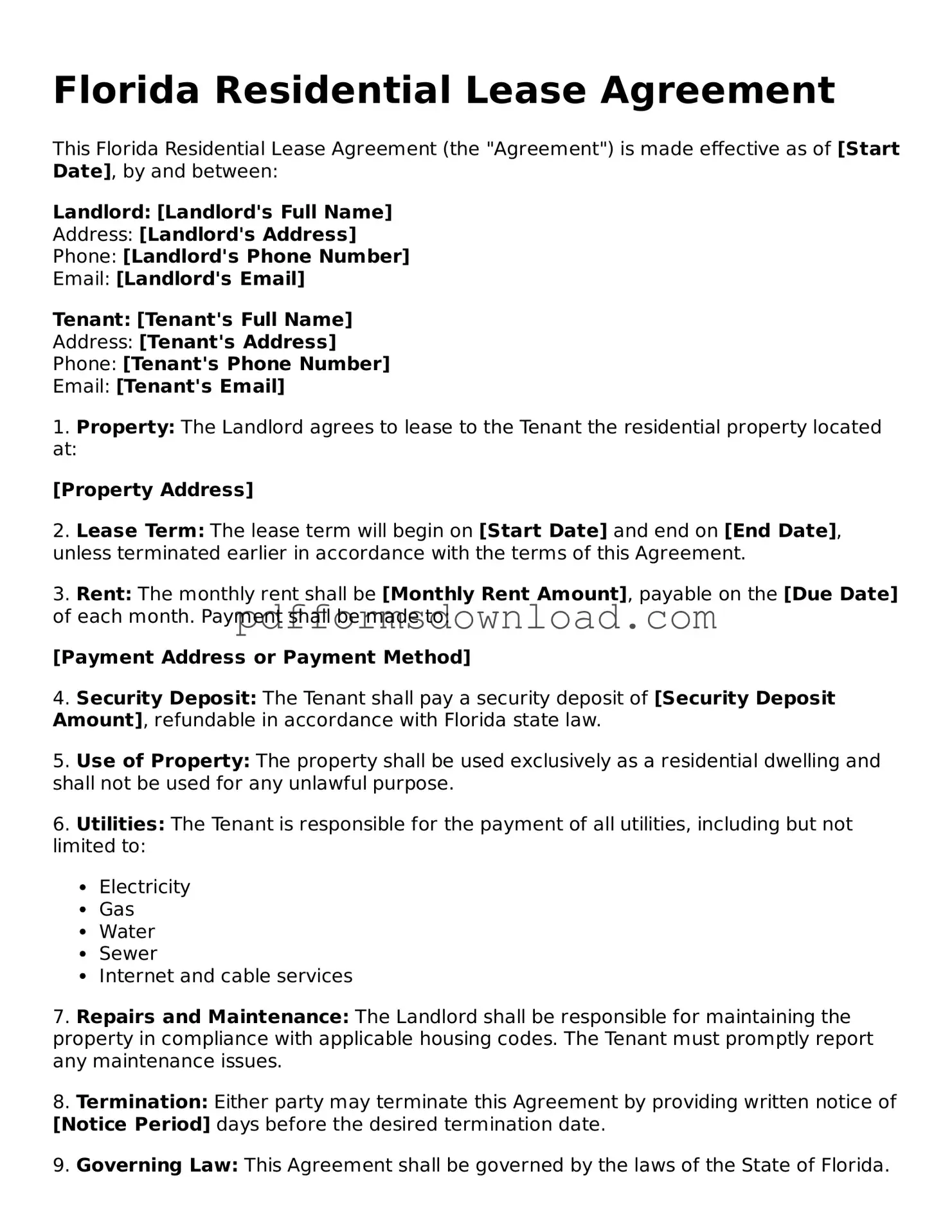What is a Florida Residential Lease Agreement?
A Florida Residential Lease Agreement is a legal document that outlines the terms and conditions under which a landlord rents property to a tenant. This agreement typically includes details such as the rental amount, duration of the lease, security deposit requirements, and responsibilities of both parties. It serves to protect the rights of both landlords and tenants while providing clarity on expectations during the lease term.
What are the key components of a Florida Residential Lease Agreement?
Key components of a Florida Residential Lease Agreement include the names of the landlord and tenant, the property address, the lease term (start and end dates), the rental amount and payment schedule, security deposit details, maintenance responsibilities, and any rules or restrictions applicable to the property. Additionally, the agreement may outline procedures for terminating the lease and handling disputes.
Is a Florida Residential Lease Agreement required by law?
While a written lease agreement is not legally required in Florida for rental agreements of one year or less, it is highly recommended. A written agreement provides a clear record of the terms agreed upon, reducing the potential for misunderstandings or disputes between landlords and tenants.
How long is a typical lease term in Florida?
Lease terms in Florida can vary widely but commonly range from one year to month-to-month agreements. A longer lease term, such as one year, often provides stability for both landlords and tenants, while a month-to-month lease offers flexibility. The specific term should be clearly stated in the lease agreement.
What happens if a tenant wants to break the lease early?
If a tenant wishes to break the lease early, they should first review the lease agreement for any specific terms related to early termination. Many leases include provisions that outline penalties or fees for breaking the lease early. Additionally, tenants may need to provide written notice to the landlord, typically 30 days in advance, depending on the terms agreed upon.
Can a landlord raise the rent during the lease term?
Generally, a landlord cannot raise the rent during the lease term unless the lease agreement specifically allows for such an increase. If the lease is month-to-month, the landlord can typically raise the rent with proper notice, usually 30 days in advance. It is important for both parties to understand the terms regarding rent increases as outlined in the lease agreement.
What rights do tenants have under Florida law?
Tenants in Florida have several rights under state law, including the right to a habitable living environment, the right to privacy, and the right to receive proper notice before eviction. Additionally, tenants cannot be discriminated against based on race, color, religion, sex, national origin, disability, or familial status. Understanding these rights is crucial for tenants to protect themselves during the lease period.
What should a tenant do if there are maintenance issues?
If a tenant encounters maintenance issues, they should promptly notify the landlord in writing. The lease agreement may specify the process for reporting maintenance problems. Landlords are generally required to address significant issues that affect the habitability of the property, such as plumbing problems or electrical issues. Keeping a record of all communications regarding maintenance can be beneficial.

